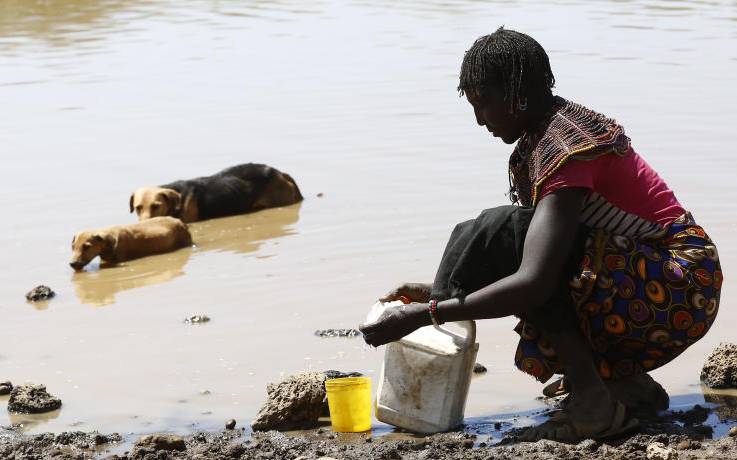×
The Standard e-Paper
Kenya’s Boldest Voice

Chebo Chebunyo fetching water while dogs quench their thirsty at Lokiwach water pan in Silale ward in Baringo County on January 30,2019. Residents are forced to travel several kilometers in search of water ,out of over 200 boreholes in Baringo 98 are not working. [Photo:Kipsang Joseph/Standard].
Mid-morning at the Napeikore Early Childhood Education Centre in Tiaty and the merciless sun has driven the pupils to flock the only water point.